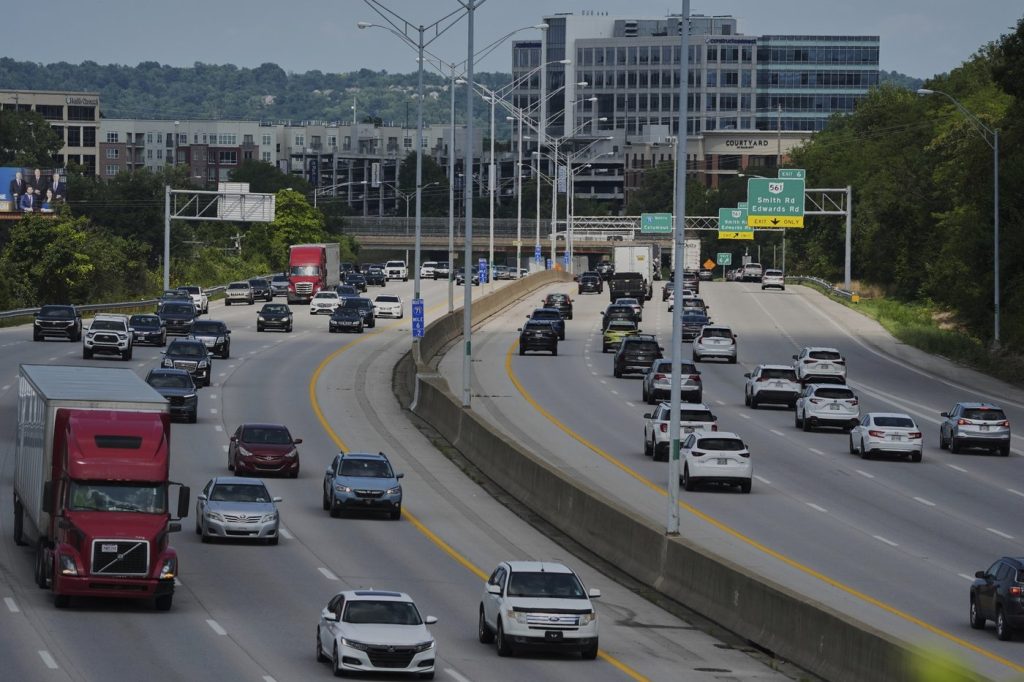DETROIT (AP) This week, the Environmental Protection Agency (EPA) announced a plan to relax regulations concerning auto tailpipe emissions, marking a continuation of the Trump administration's efforts to weaken incentives for automakers to transition to electric vehicles (EVs). This move is part of a broader initiative aimed at dismantling regulations related to climate change and public health, including the 2009 determination that carbon dioxide and other greenhouse gases pose a threat to public welfare. Revoking this finding would significantly undermine the legal framework for regulating emissions from various sources, including vehicles and power plants.
President Donald Trump's recent substantial tax and spending legislation targets incentives for electric vehicles, including the elimination of a tax credit that previously allowed buyers to save up to $7,500 on new EVs. Additionally, the new law repeals penalties for automakers that fail to meet federal fuel economy standards, a policy that has historically generated revenue for firms producing electric vehicles due to a credit trading system. Automakers like Tesla, which have produced vehicles that don’t rely on gasoline, have profited significantly from this system, earning billions through the sale of credits to other manufacturers.
However, these financial advantages are set to diminish under the new policy framework. The Trump administration has also sought to challenge federal funding for EV charging infrastructure and has blocked California's ban on new gasoline-powered vehicle sales. Together, these actions reduce the urgency for automakers to adopt cleaner technologies, which is concerning given that the transportation sector is the leading contributor to greenhouse gas emissions in the United States.
The stringent tailpipe emissions and mileage regulations were part of the Biden administration’s strategy to decrease fossil fuel reliance and encourage EV adoption. Currently, around 8% of vehicle sales are electric, but to meet the EPA's fronted limits, projections indicate that 56% of new vehicle sales would need to be electric by 2032, accompanied by a mix of plug-in hybrids and more efficient gasoline vehicles. The Biden administration also mandated an average fuel economy of around 50 miles per gallon for light-duty vehicles by the model year 2031 and 35 miles per gallon for larger vehicles by model year 2035.
In response to these challenges, Transportation Secretary Sean Duffy has reportedly pressured the National Highway Traffic Safety Administration (NHTSA) to reconsider these regulations, suggesting that the inclusion of EVs in fuel economy calculations is illegal. Consequently, it is anticipated that NHTSA will significantly weaken or reset these standards. The removal of fines for non-compliance with fuel economy rules is particularly noteworthy. With the passage of what is referred to as the One Big Beautiful Bill, penalties for failing to meet these standards have been eliminated entirely from model year 2022 onward.
The implications of this policy change are substantial; major automakers had previously incurred substantial fines for violations of the fuel economy standards, and the revocation of these fines is seen as a potential incentive for less compliance with emissions regulations. Critics argue that this invites automakers to bypass their responsibilities, likely leading to more gas-guzzling vehicles on the road, which would ultimately increase consumer fuel costs and benefit the fossil fuel industry. Important voices in environmental law have characterized the decision to forgive fines as a significant setback for efforts to foster sustainable automotive manufacturing practices.
Shifts in the automotive landscape are expected to manifest more vividly for model year 2027 and beyond, although automakers may hesitate to abandon their EV development efforts entirely, acknowledging the cyclical nature of political administrations. Nonetheless, without the pressure of financial consequences, it is likely that manufacturers will scale back their plans for electric vehicle production in the near term, affecting the pace at which EV sales growth could progress. As the auto industry adapts to these new regulatory conditions, analysts caution that the long-term vision for cleaner technology may still persist among manufacturers, albeit at a slower rate.










